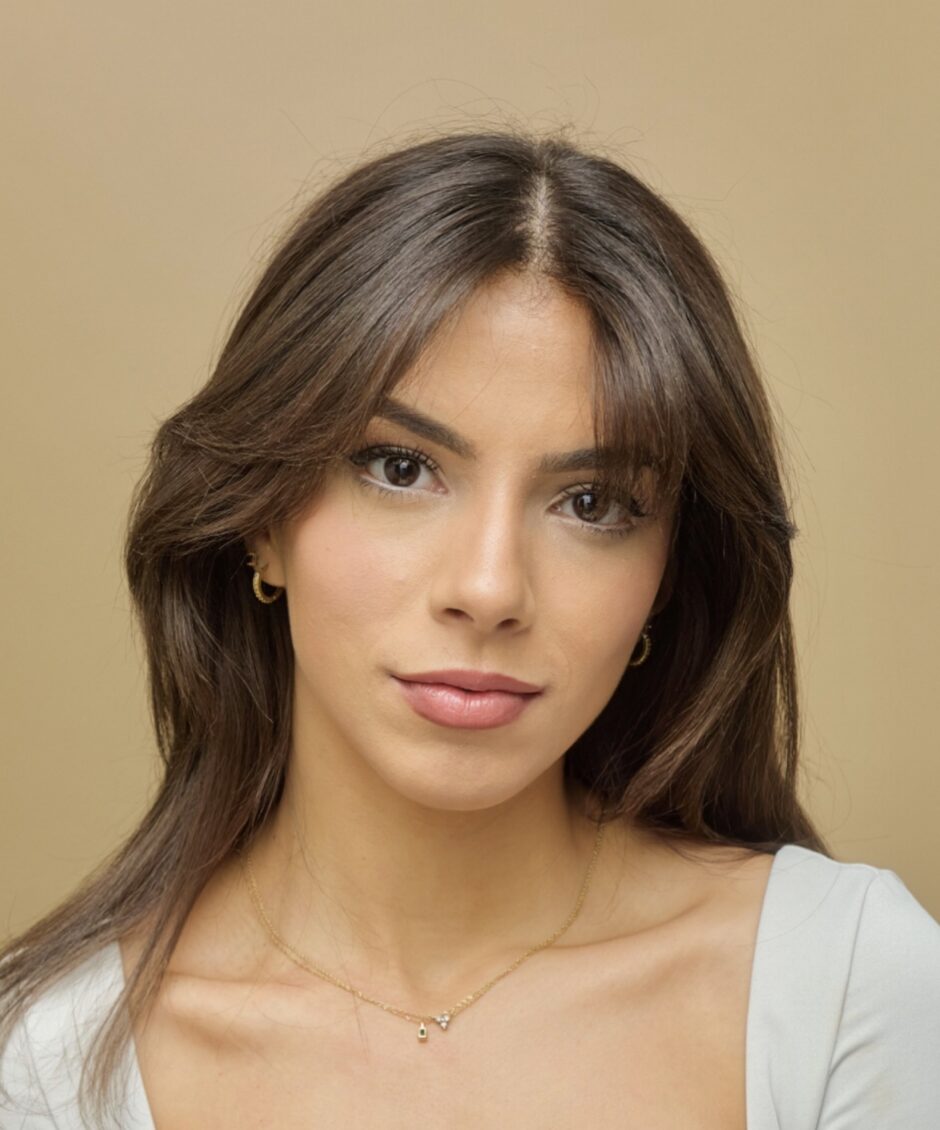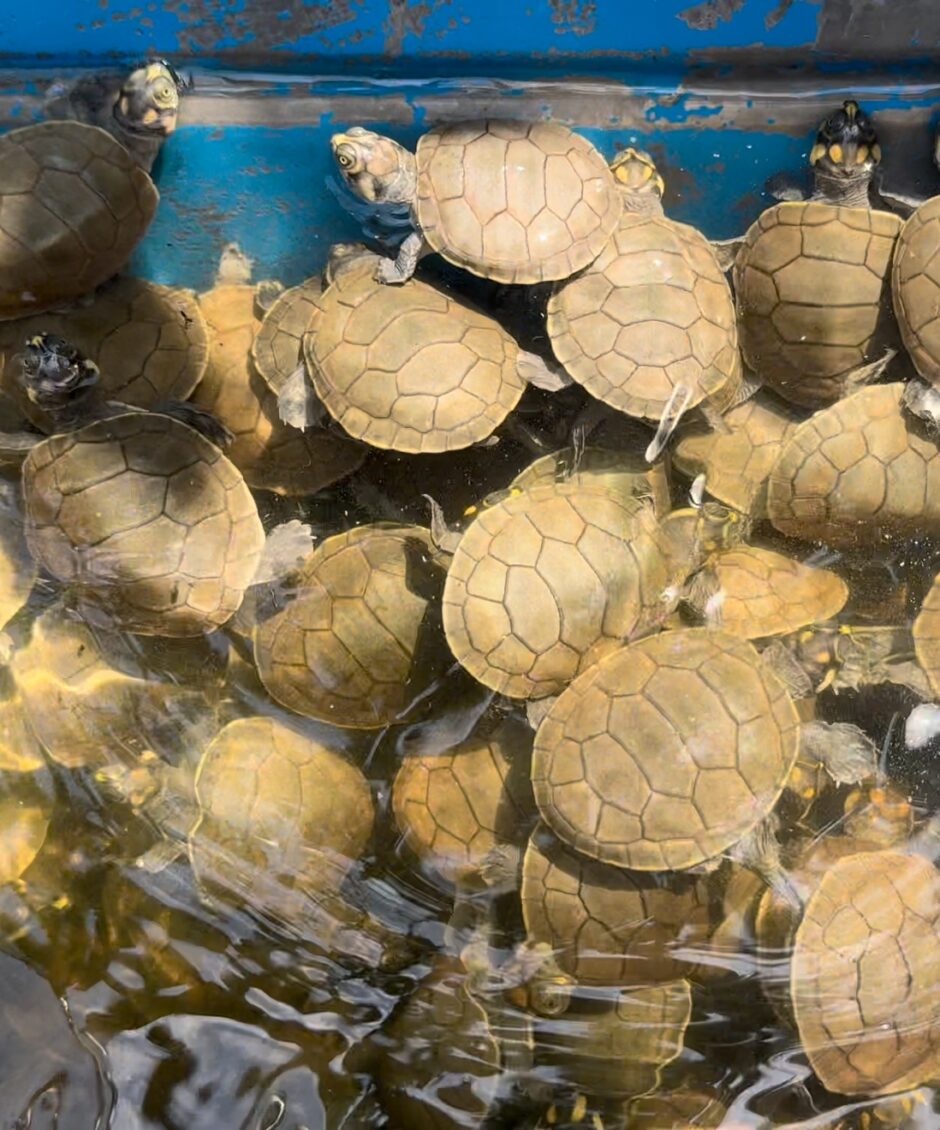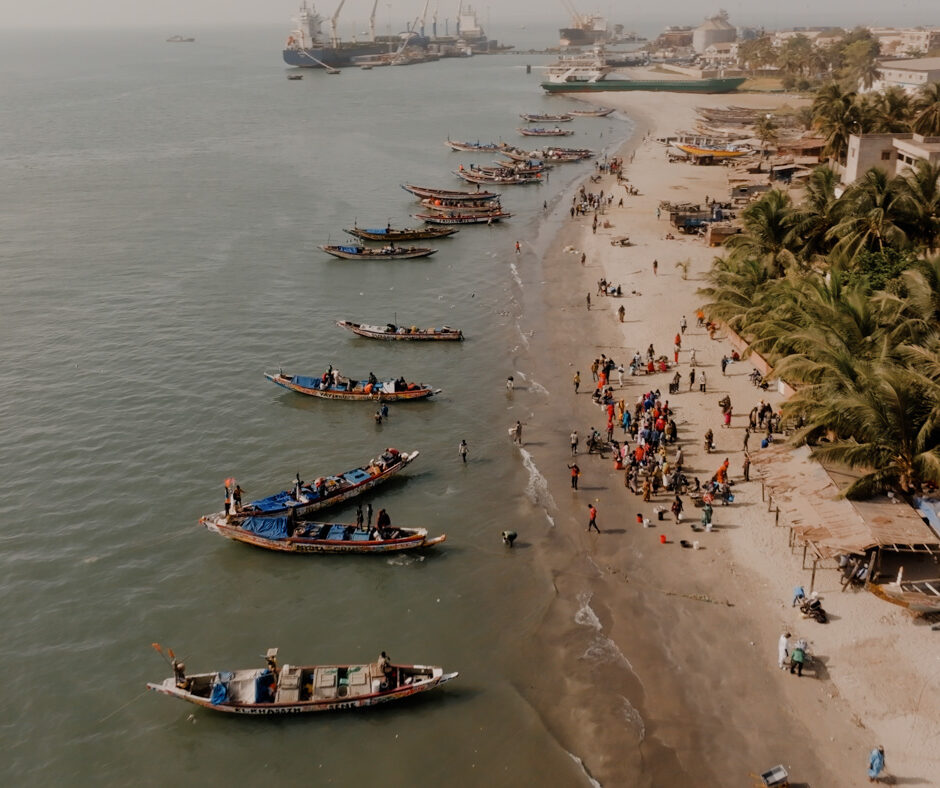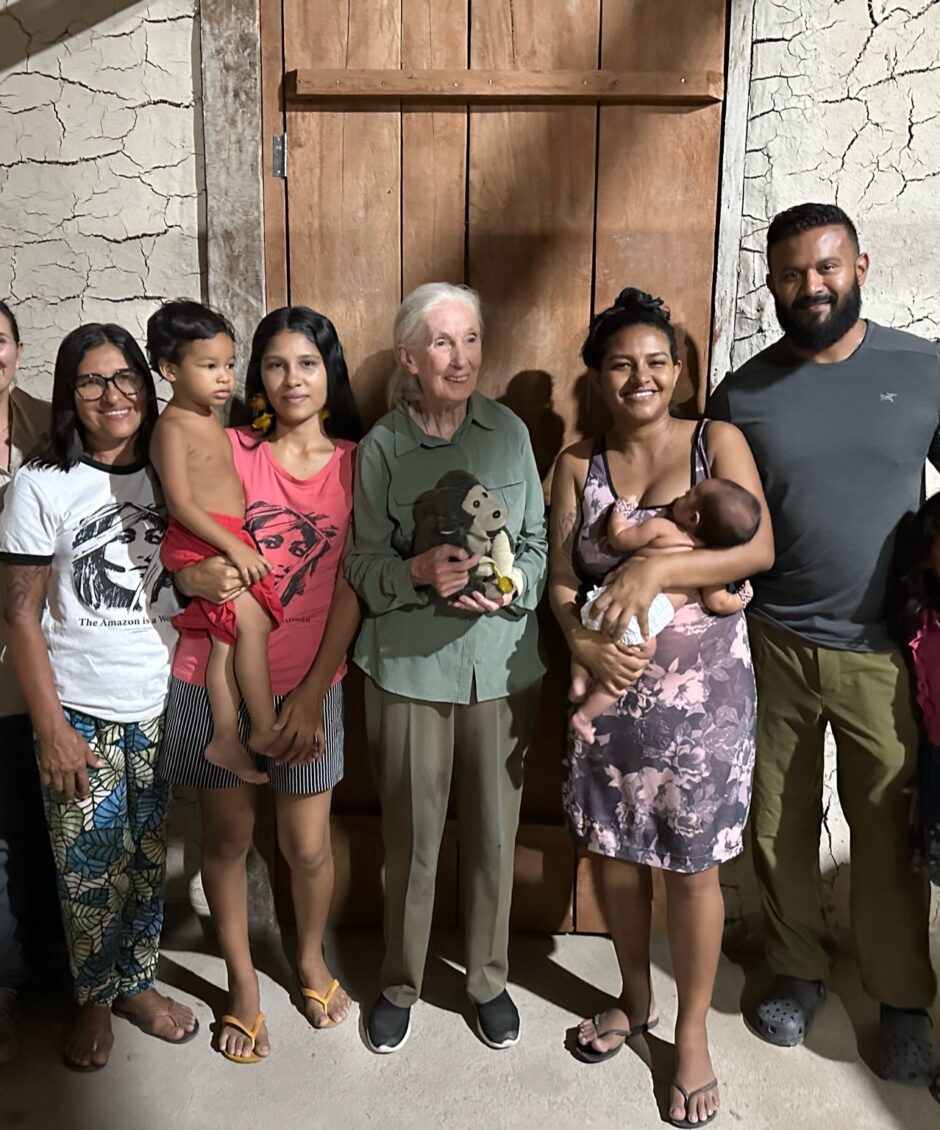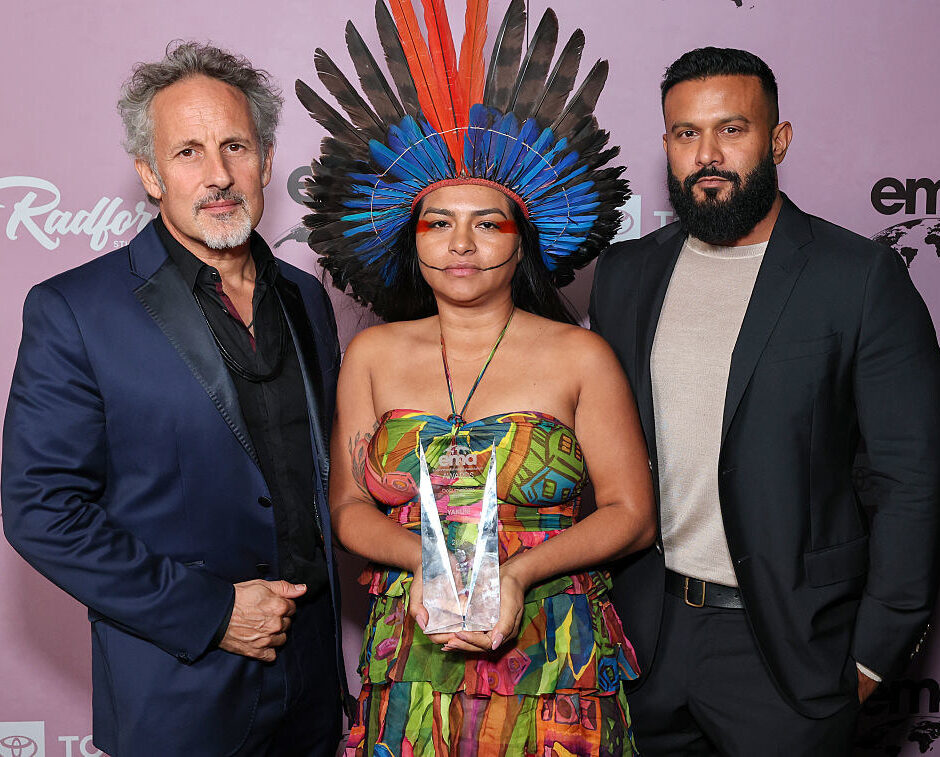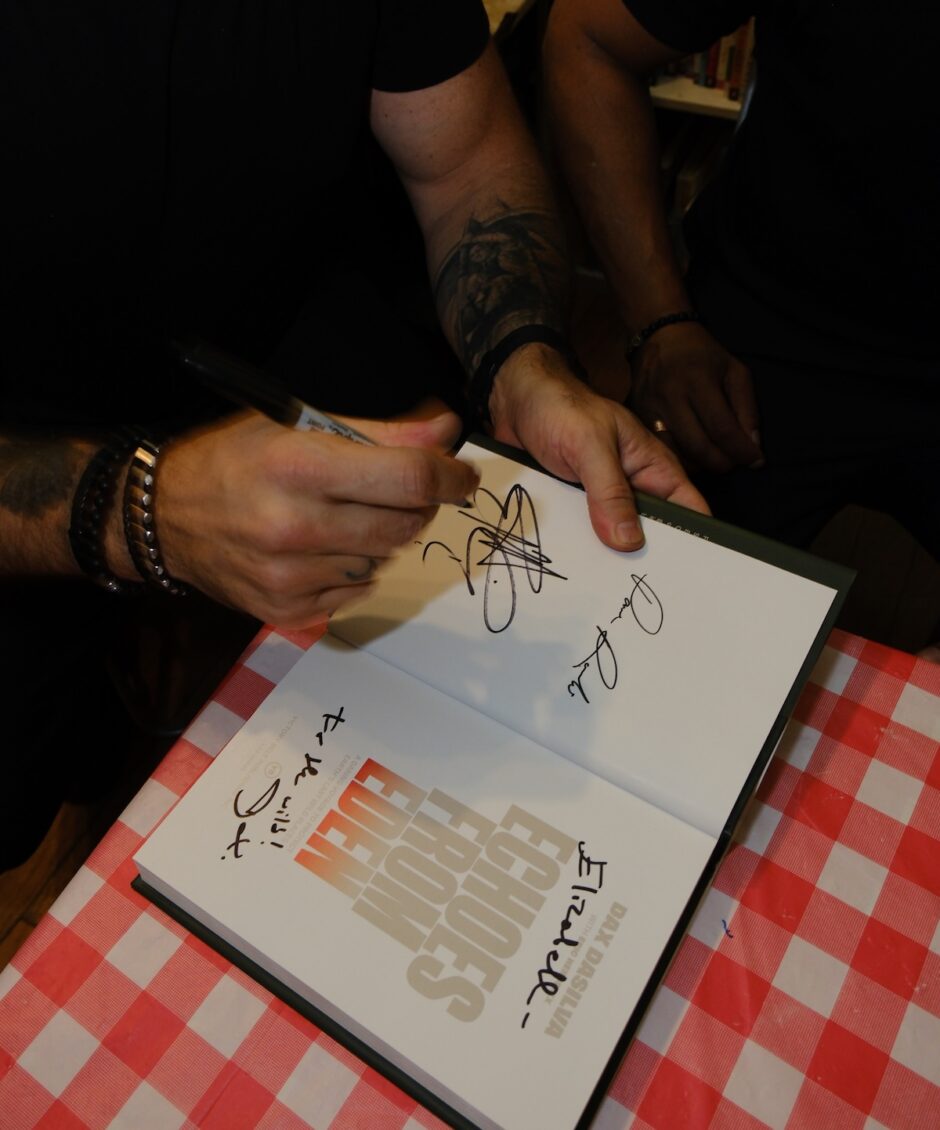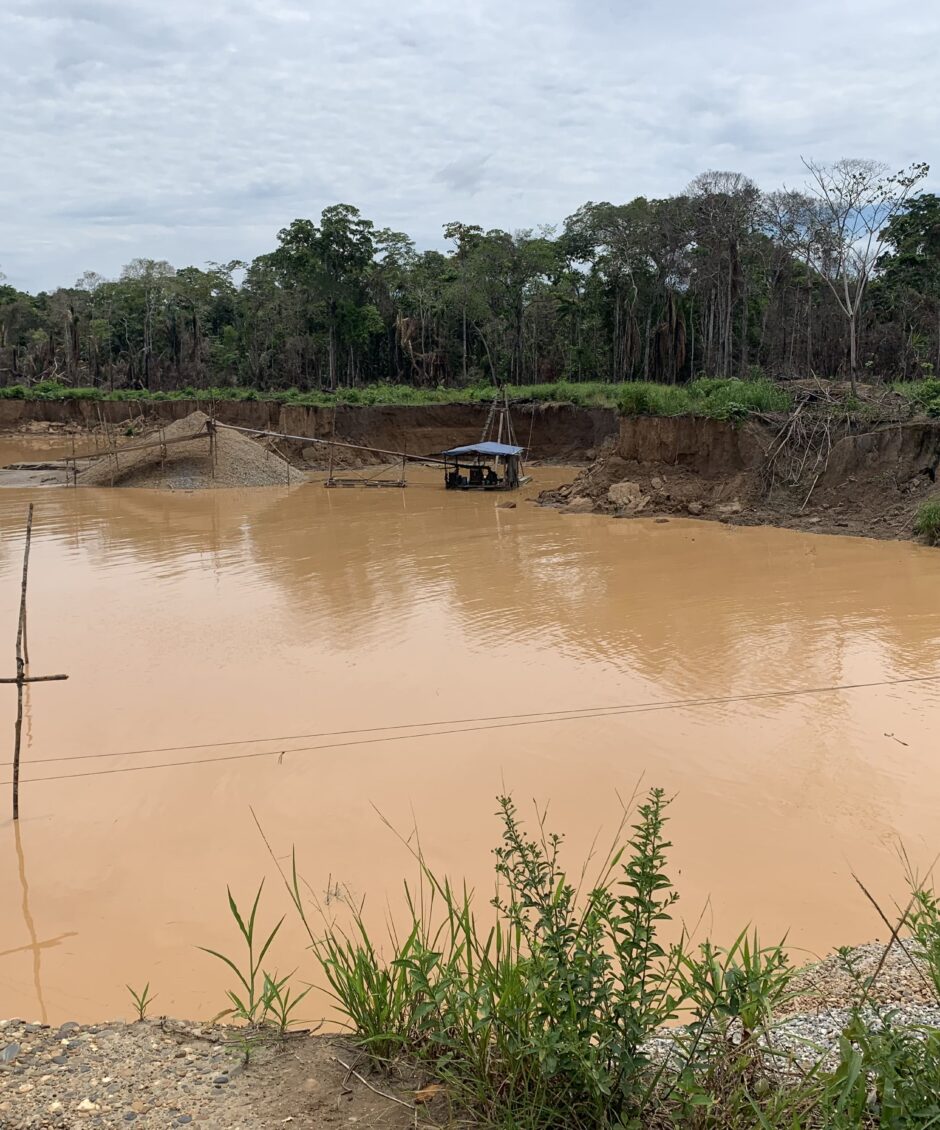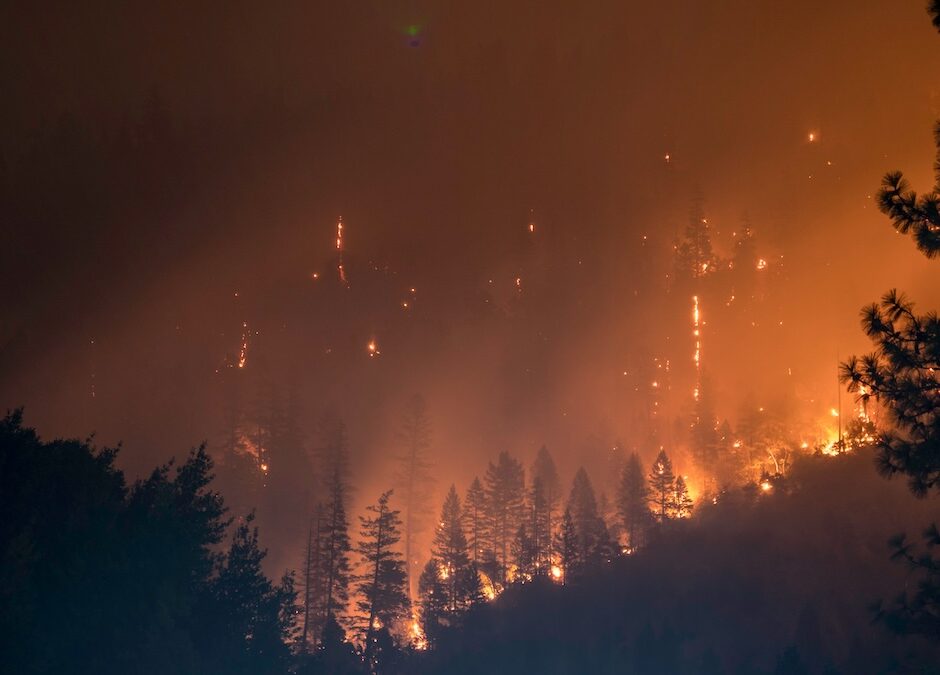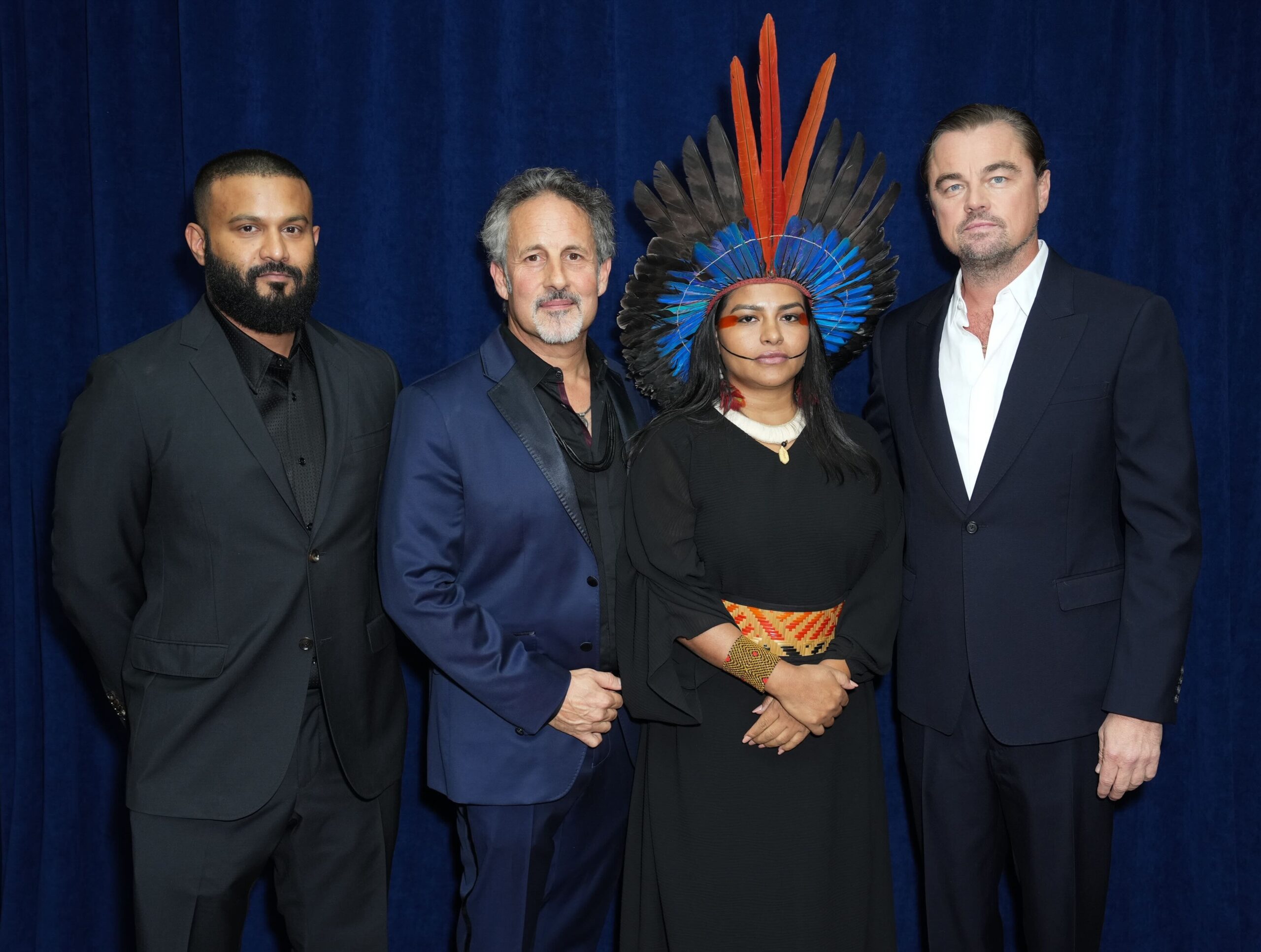This Rising Trinidadian Leader Is Paving the Way For Youth and Women in Conservation
Article
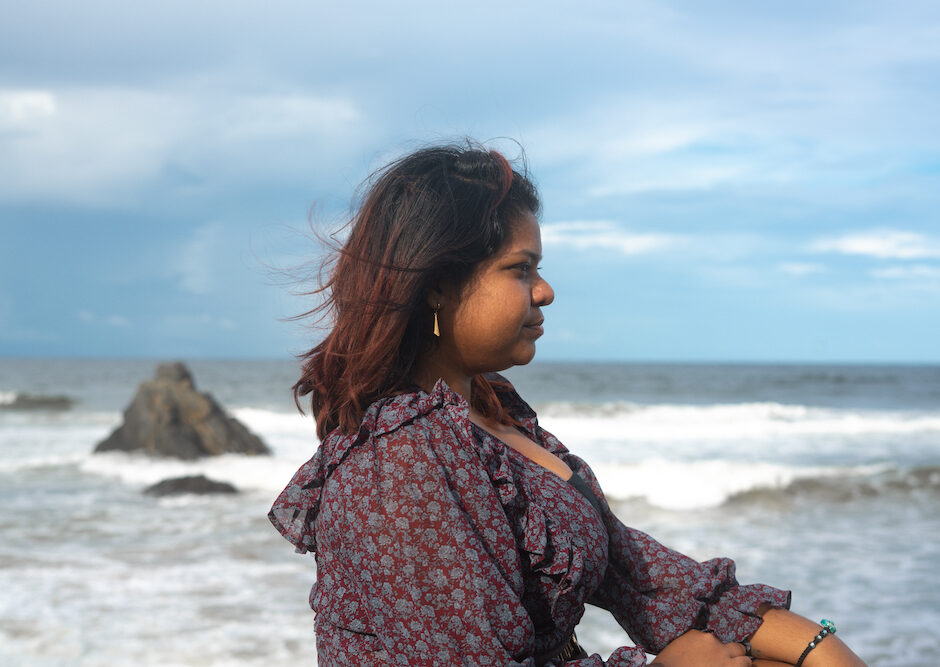
In an interview with Age of Union, Chelsea Harripaul delves into her unexpected journey into turtle conservation, the transformative role of youth and women in environmental efforts, and the power of personal passion in driving conservation success.
Author
Sarah El Gharib
Topics
In July 2023, ahead of the launch of the “On the Frontline” digital series, Age of Union spoke with Chelsea Harripaul. As a key member of Nature Seekers, one of Age of Union’s ten partner projects, Harripaul discussed the organization’s efforts in turtle conservation, emphasizing the involvement of youth and women. She also shared her personal motivations to promote environmental activism and conservation awareness in her native country of Trinidad.
Age of Union: Can you tell us about how you became involved with the Nature Seekers and what made you want to work towards leatherback turtles?
Chelsea Harripaul: As my journey began here, I must say it was fate. It wasn’t just a mere coincidence. My background or my academic studies would have been in international tourism management. I did my bachelor’s a few years ago, and after working at a couple of different companies and organizations, [I heard about] a program from the ministry that selected people to be placed in nonprofit organizations (NGOs).
I had memories. I’d heard about Nature Seekers, but I had no idea what it would be like coming in. When I got here, things started slowly, and then nesting season happened, and I was like, “Oh my goodness.” Things started picking up, and I really saw the importance of data and science when it came to conservation. I have dealt with a lot since I started to know visitors and people from foreign countries. I love that part of my job. I love dealing with people.
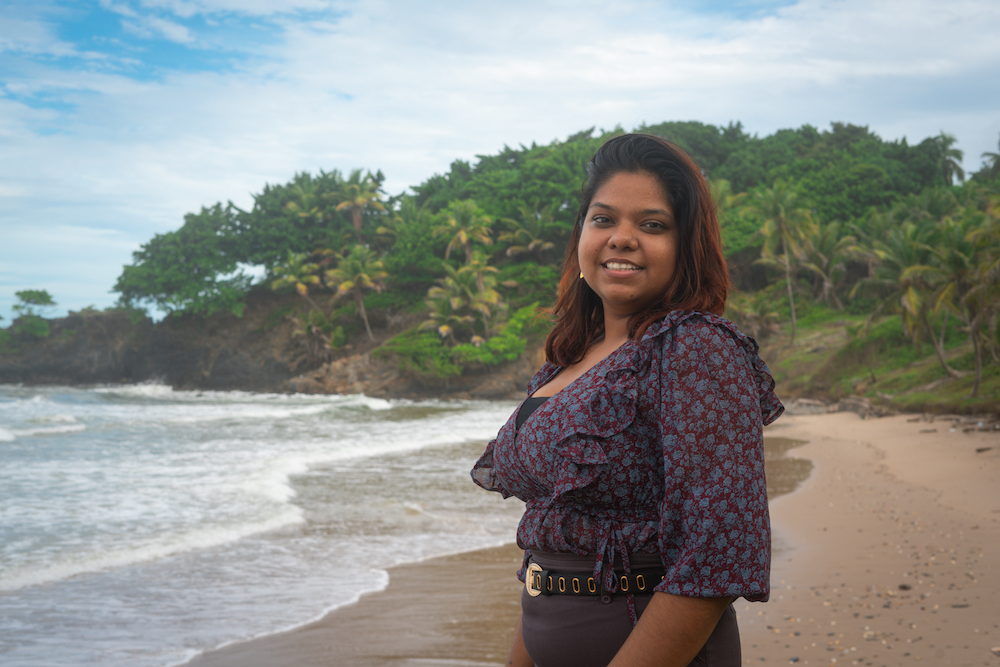
Before joining Nature Seekers, how much did you know about leatherback turtles and conservation?
I grew up pretty close to nesting sites and fishing. I’m about 15 minutes away from nesting sites, and I have memories of going to that which is off the coast or the end of Matura and bridges with fishing. I remember being a kid and seeing leatherback turtles and hatchlings as well. But that was just my interaction: that tourist experience. So, from then to now, I have learned that it’s more about conservation; it’s more about the protection of the species. It’s more than just a field trip. It’s so much more than just a night out with your family. You are single-handedly playing your part in protection and conservation. When you actually experience it, and you say, “What I’m doing here is going to affect this entire species, something so much greater,” it’s amazing. Every time, it’s like the first time.
When was the first time you went on a patrol?
It was the start of the season in 2022. I went out just to see what they [Nature Seekers] do. In no time, I was just ready to learn about turtles, to get in. What they do is inspiring. Each patrol, each ranger, each guide, and every person has their own way of doing things. It’s standardized, of course, but you learn an inspiring story with each person. Their background and how they came into the organization as well — I mean, that, in itself, is just so inspiring.
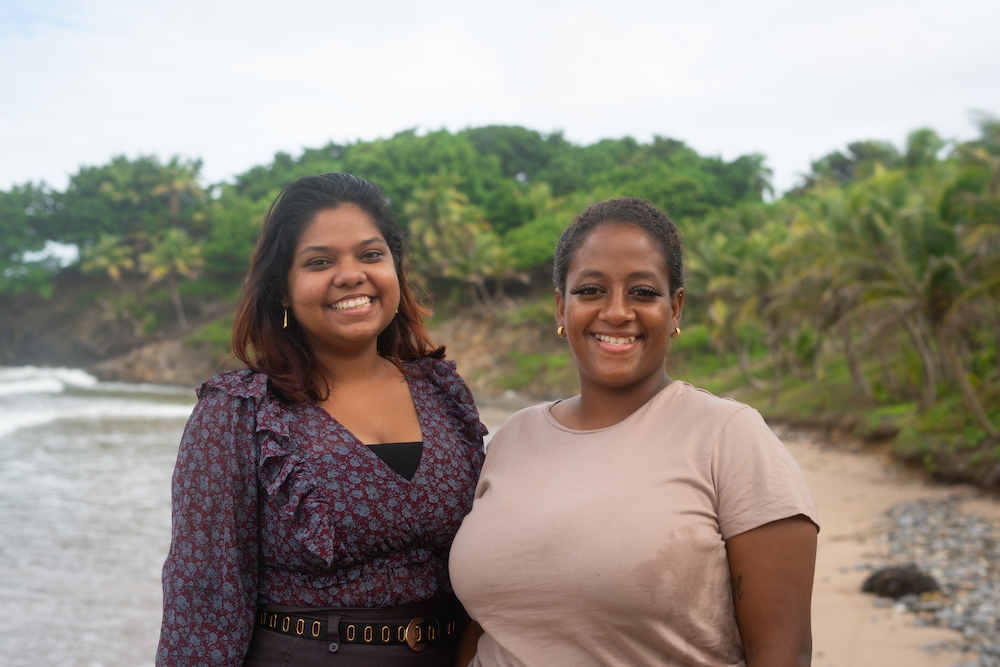
What is it like to work so closely with the team and Susan?
I think we were really meant to be. It may sound cheesy, but we have such a good dynamic going. When there are personalities that may seem to be introverted, another who is more introverted may come along and complement. We work very well together, we complement each other’s skill sets, and that drives me. It makes you passionate about doing when you have that support. I’m not a morning person, but what makes me get up in the morning is knowing that I’m coming to this group of people knowing I will be treated well. That’s why I think community is so important — because we support each other. I don’t think anybody ever hesitates to say, “I’m proud of you,” or, “You’re doing a great job.” Your work might sometimes give you that gratification to complete a project, see the takeaways of everything that was completed, and feel good. But here, you have a support system around you that is willing to validate your efforts as well.
How is that reflected in the broader community in Trinidad?
It definitely is because we have both tourists and visitors who come and get a taste of our food, culture, and people. Most of them, if not all of them, when they leave, say, “Wow, we never expected this.” Because you have a resident or local community member cooking with you, and it feels like home. It tastes like home. To hear from them that they feel that family or that community vibe as well tells us that we’re doing something right.
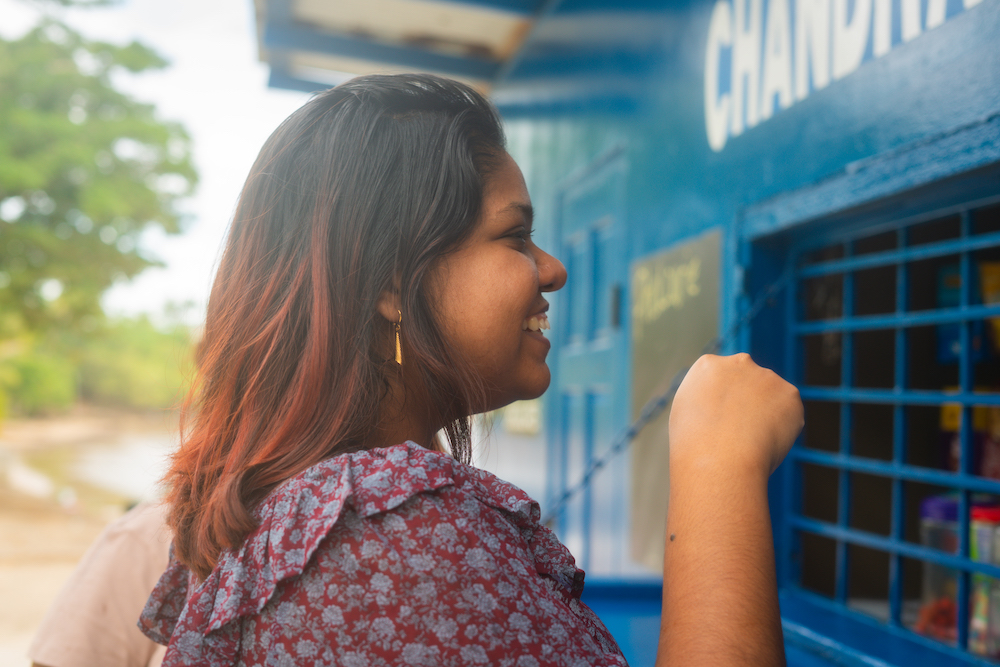
Yesterday, you celebrated your 27th birthday. How do you feel as a young person playing such an important role on a key conservation issue? How do you feel about that and the role of young people in conservation?
I think it would not have been possible if it were not for the people before us. Definitely, having Susan as a leader and someone who would pave the way is what drives you. It just reinforces the importance of passion in that field as well. It’s sometimes surreal to think that what we may regard as very small has such a big impact. It shows that it’s a trickle-down effect that passes itself down. You need to really see the value in a person coming into the organization or the world of conservation and capitalize on those things. It’s all about education and making people feel comfortable.
How do you see yourself potentially passing it down?
It’s definitely a lot. I’m trying not to think about it at times. But I’m flattered, of course. We have many young women coming into conservation with so many different skill sets. You see so much potential, and you just want to nurture that. You want to get the best out of them as well. We have some girls on our team who are really, I would say, gifted when it comes to interpersonal skills — they just need time. They just need someone there with them to say, “Hey, you can do it like this. Maybe you can do it like that.” I’m looking forward to every opportunity to help them earn a better living as well. It’s something about empowerment and something about doing good. Other women start thinking, “She’s doing it, so maybe I can. It’s possible for me, too.” It gives you a belief in yourself as well to see it be done successfully. I think that spreads like wildfire. Women see that they aren’t helpless. We can actually achieve so much. The sky’s the limit.
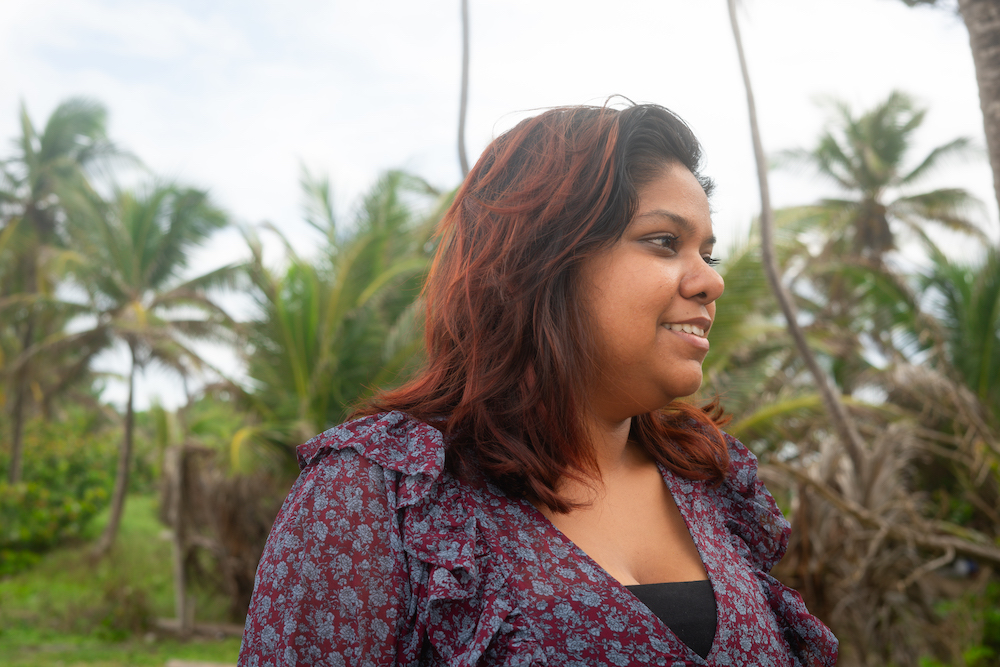
What’s your relationship with Susan like?
I don’t want to compare it to anything else, but she almost feels like my sister. She definitely a mentor, and we’ve worked through many things together. It’s easy to confide in her. I see a lot of myself in her, she sees a lot of herself in me, and we have a lot of common beliefs. If we want something done, we will get up and do it ourselves. I see she’s a mover as well.
Can you tell us about the project you’re most proud of?
We did a summer program with the University of Illinois. There was a group of students, and we had them devise ideas to meet a specific goal. Once a week, they would come in, and it was amazing to see them, as well as the idea that they had come to life. To have them witness what we do here and how they would have contributed to us as an organization — that was amazing. They had such a beautiful time here. They helped a lot with community outreach efforts. It was something so much greater.
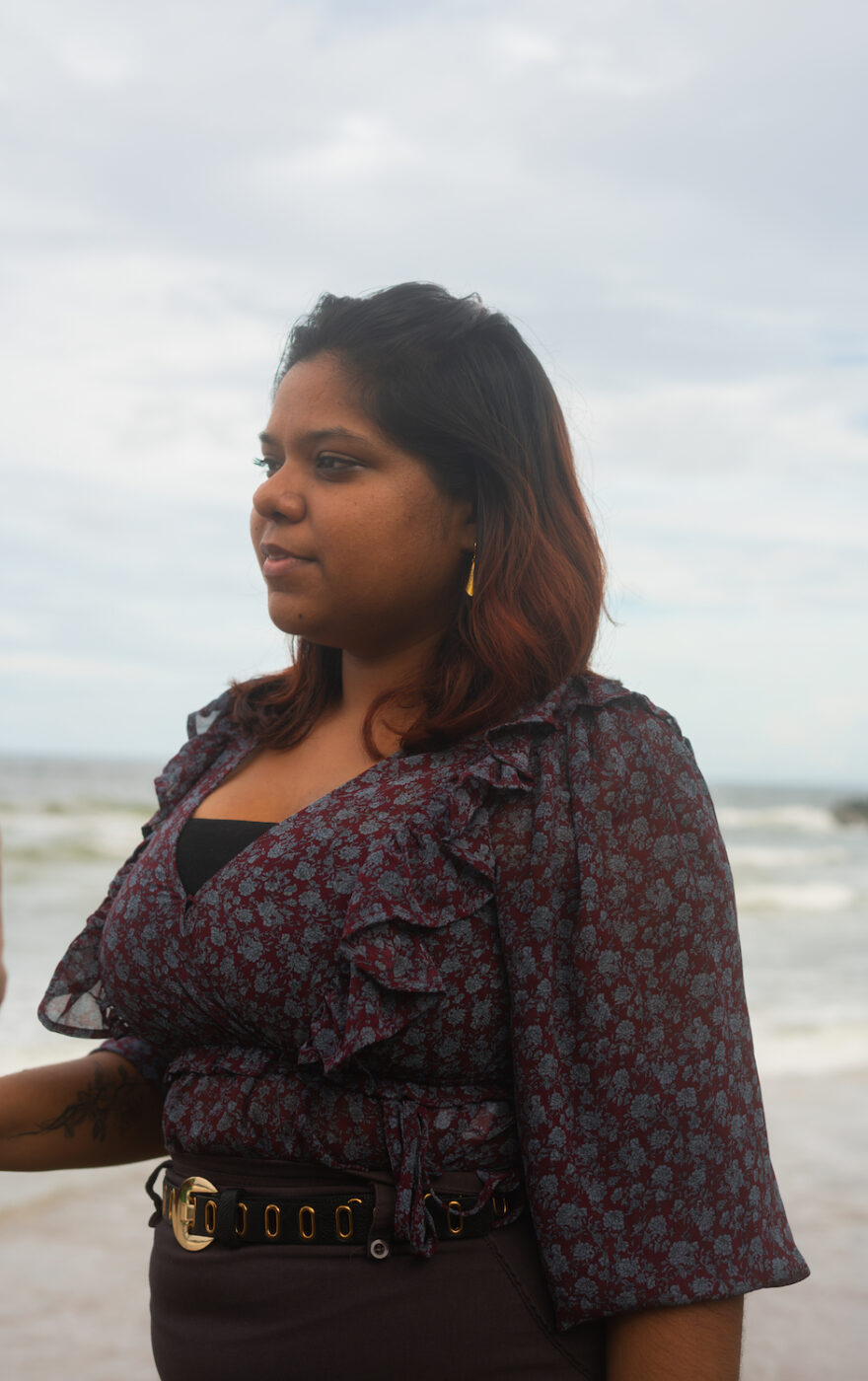
What are the educational gaps surrounding leatherbacks and conservation in Trinidad? How would you bridge them?
Here, we have this idea that tourism depends on carnival or mass tourism efforts, and people don’t see that there’s opportunity elsewhere. Eco-tourism is now a rising industry. It’s also sustainable for the environment, and it can be done in a sustainable way.
With respect to education around leatherbacks, I think we probably only drive a person to learn a lot during the nesting season. They see it as an opportunity to be involved in eco-tourism, as a field trip. They come to Matura, meet us and hear what’s happening. Schools also contact us, requesting our staff to do educational drives, but we see most of that happening during the nesting season. I definitely think outside of nesting season, we can make a move on those opportunities as well, letting people know that while leatherback turtles are now feeding elsewhere, we’re preparing for them to come back to nest next year as well and that the work that’s happening off-season is just as important.
What are your hopes for the community and nature?
My hope for myself and the organization is to get to a place where we can sustain our objectives and inspire as well. When Nature Seekers was established in 1990, the priority was to protect at the top and “conserve” came as a byproduct. Poaching was huge at that time, and that was the challenge. We’ve moved past poaching, thankfully, but there are so many new challenges — like bycatch. I would love to see us become changemakers in that area, both at the national and international levels.
This interview has been edited and condensed for clarity.
“On the Frontline” is Age of Union’s new series of short documentary films following the people driving change and protecting our planet’s crucial species and ecosystems across our ten global conservation projects. Learn more about Nature Seekers’ work to protect the endangered leatherback turtle in Trinidad in our latest episode on YouTube.
Credits
Sarah El Gharib
Topics
Article written by
Sarah El Gharib
Related
articles
Africa, Project
Inside the Fight to Protect Gambian Artisanal Fishermen and Biodiversity From Industrialized Fishing
News, Project, South America
Age of Union Announces USD $287,000 Commitment to The Juma Institute for New Knowledge Centre and Amazon Rainforest Protection
Project
More articles
News
Age of Union Marks 4 Years of Global Conservation Wins As COP30 Commences in Brazil
News, Other
‘Echoes from Eden’ Book Tour Connects Readers to Urgent Stories of Conservation
Explainer, South America
In the Amazon, Gold Mining Leaves a Toxic Trail
America, Asia, News
What More Intense Wildfire Seasons Mean For People and the Planet
Film
